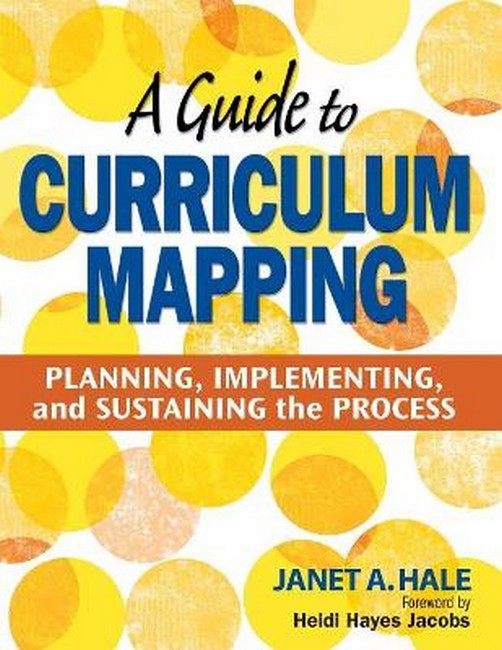Janet Hale is an educational consultant and trainer who is passionate about supporting educators in making curriculum decisions that ensure, enhance, and enrich learning and teaching experiences. She works with schools, districts, and higher-ed programs in the areas of curriculum, instruction, and assessment. She specializes in curriculum mapping; standards literacy and alignment; and documenting learning. Her Masters in educational leadership and curriculum development; elementary, secondary, and special education classroom experiences; and working alongside teachers and administrators for over 20 years enable Janet to provide unique insights that aid the learning organizations she has the pleasure of assisting. She has written an assortment of educational resources, including three titles for Corwin, and enjoys presenting at national and international conferences. Janet resides in Tucson, Arizona, with her husband, Johnny, and their four-legged Schnauzer children. Visit Janet's consulting website: CurriculumDecisions.com and documenting learning website: documenting4learning.com. You can follow her on Twitter @janet_hale, as well as @doc4learning. She can be contacted via e-mail at teachtucson@aol.com or by phone at 520.241.8797. .
Request Academic Copy
Please copy the ISBN for submitting review copy form
Description
List of Figures Foreword by Heidi Hayes Jacobs Preface A Resource for Teachers and Administrators Overview of the Contents Acknowledgments About the Author 1. How Do We Need to Think, Act, and Meet Differently? Thinking Differently: Planned Versus Operational Curriculum Acting Differently: Verification Versus Speculation Meeting Differently: A Collegial Forum Conclusion Review Questions 2. What Are the Four Types of Curriculum Maps? Four Types of Curriculum Maps Curriculum Map Elements: An Overview Conclusion Review Questions 3. What Should We Consider Before Developing Curriculum Maps? First Consideration: Exploring Personal and Collaborative Understanding of Curriculum Design Second Consideration: The Ongoing Nature of Mapping Reviews Third Consideration: A Mapping Sequence That Is Right for Your Learning Organization Conclusion Review Questions 4. What Elements Are Commonly Included in Curriculum Maps? Curriculum Map Alignments and Elements Writing the Elements Conclusion Review Questions Descriptive or Not Descriptive? That Is the Question! (Math Focus) Descriptive or Not Descriptive? That Is the Question! (Language Arts Focus) Skill Versus Activity (Math Focus: Primary Grades) Skill Versus Activity (Various-Discipline Focus: Upper Grades) Assessment Versus Evaluation 5. What Should We Know Before Creating Diary Maps or Projected Maps? Points to Ponder Implementation Considerations Conclusion Sample Projected/Diary Maps Review Questions Conducting an Initial Read-Through: Facilitator Explanation and How-To Guide Conducting an Initial Read-Through: Team Member Explanation and How-To Guide Initial Read-Through: Collaborating to Create Quality Maps Initial Read-Through Card Shuffle Debrief 6. What Should We Know Before Creating Consensus Maps and Essential Maps? Map Type Differentiation Developmental Considerations Conclusion Sample Consensus Maps and Essential Maps Review Questions 7. How Should We Be Using Our Created Curriculum Maps? Conducting Data-Driven Reviews Investigating the Curriculum Conclusion Review Questions 8. What Data Is Often Incorporated When Refining Curriculum Maps? Additional Map Data Essential and Supporting Questions Conclusion Review Questions 9. How May Standards Influence Our Curriculum Design? Standards and Curriculum Breaking Apart Standards Determining Power Standards Conclusion Review Questions 10. What Should We Consider Regarding Technology? Commercial Online Mapping Systems Mapping System Considerations Conclusion Review Questions 11. What Should We Focus on When Planning Our Implementation? Systemic Change and Curriculum Mapping Vision Skills Resources Incentives Action Plans Conclusion Review Task 12. What Roadblocks and Brick Walls May We Encounter Along the Way? Practical Advice From Practitioners Glossary of Terms Curriculum Mapping Types of Maps Map Elements Alignments Seven-Step Review Process Common Review Focuses Curriculum Mapping Intra-Organizations Miscellaneous Terms References Index
"Curriculum mapping has been a stepping stone for our faculties to become professional learning communities. It has provided a vehicle for our teachers to engage in professional conversations for the benefit of our students. Janet Hale has given us the road map for this journey." -- David Woolwine, Associate Superintendent "Janet Hale has captured the layered foundation of curriculum mapping. She makes the journey through the how's and what's of mapping an easier and more understandable experience. This book is a great resource for teachers beginning or already on the path of developing individualized maps." -- Donna Bateman, Teacher "Provides very practical strategies for designing and implementing a successful curriculum mapping initiative. Hale offers specific illustrations to help move teachers away from writing activities to designing curriculum. The concrete examples included throughout are easy to understand and will be used as guides by our teachers as we move forward with consensus map design." -- Jeffrey Dolce, Curriculum and Staff Development Coordinator "An essential, easy-to-follow guidebook. Hale has done an excellent job in outlining the step-by-step process of curriculum mapping. As a classroom teacher, I couldn't imagine a better tool for planning and implementing my lessons. Curriculum mapping has helped me better plan for instruction and make certain that I have covered the necessary state standards. As I continue my journey on the road to developing more effective maps, this book will be a resource I will refer to and recommend to my colleagues." -- Monica Duvall, Fifth-Grade Teacher "An excellent guide for schools and districts interested in implementing curriculum mapping. The author was honest in her approach, emphasizing that this process is not a 'quick fix' and that key components must be in place for it to be successful. After reading the book, I am ready to 'saddle up' and start preparing for a prologue year." -- Vanessa Eugene, Administrator "An outstanding survey for putting data-based decision practices into real-world teaching experiences. Hale's work with thousands of educators offers steps for mapping efforts that can fuel school cultures." -- The Bookwatch, May 2008

